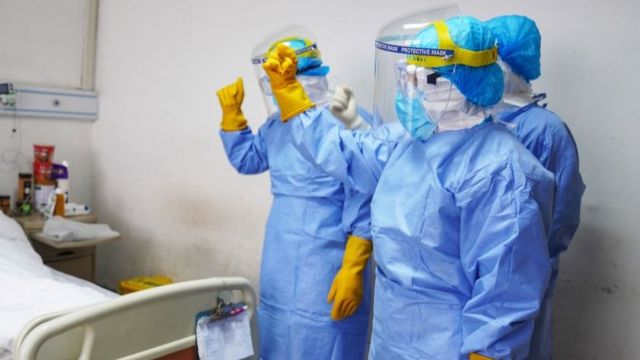The Nigeria Centre for Disease Control (NCDC) said the country recorded additional 317 COVID-19 cases on July 23, from 187 cases on July 22.
The NCDC made this known on its website on Saturday morning.
The News Agency Of Nigeria (NAN) reports that the country’s COVID-19 cases have continued to rise for nine consecutive weeks, signaling the third wave of the deadly Delta variant.
The NCDC said the 317 additional infections took the country’s total coronavirus cases to 170,623 and 2, 131 casualties.
It stated that the 317 additional new cases were reported from 10 states and for Federal Capital Territory (FCT).
“Lagos State where a majority of the cases were picked on Friday recorded 172, Akwa Ibom registered 62, Oyo announced 33, while Rivers, Ekiti, the FCT and Ogun recorded 32, 5, 5, and 3 each.
“Amongst others were Sokoto, reporting 2, while Bayelsa, Gombe and Kano, recorded one each,” it said.
It noted that Friday’s report included four states with zero cases reported: Imo, Kaduna, Nasarawa and Plateau.
The agency said the country’s active cases stood at 3,702 as of July 23.
It stated that eight people who had recovered from the disease had been discharged from isolation centres across the country.
The public health agency added that till date, 164,780 recoveries had been recorded nationwide in 36 states and the Federal Capital Territory.
The agency said the country had also tested more than 2.4 million samples for the virus out of the country’s 200 million population.
It added that a multi-sectoral national emergency operations centre (EOC), activated at Level 2, continued to coordinate the national response activities.
Meanwhile, the agency urged Nigerians to take responsibility and not allow the Delta and other variants slow the country’s progress in the fight against COVID-19.
“When the virus continues to spread, there are more opportunities for the virus to change and for new variants to emerge.
“If you think about a virus like a tree growing and branching out; each branch on the tree is slightly different than the others. By comparing the branches, experts can label them according to the differences.
“These small differences, or variants, have been studied and identified since the beginning of the pandemic.
“Some variations allow the virus to spread more easily or make it resistant to treatments or vaccines. Take responsibility as we continue to work very hard to monitor these variants more carefully,” it explained.
The NCDC added that Nigerians must protect themselves against COVID-19, as the virus continued to spread across the country and the variants were circulating.
“Take steps to protect yourself from the virus. Get a COVID-19 vaccine, when it is available to you.
“Wear a mask that covers your nose and mouth to help protect yourself and others. Stay six feet apart from others who don’t live with you,” said the agency.
